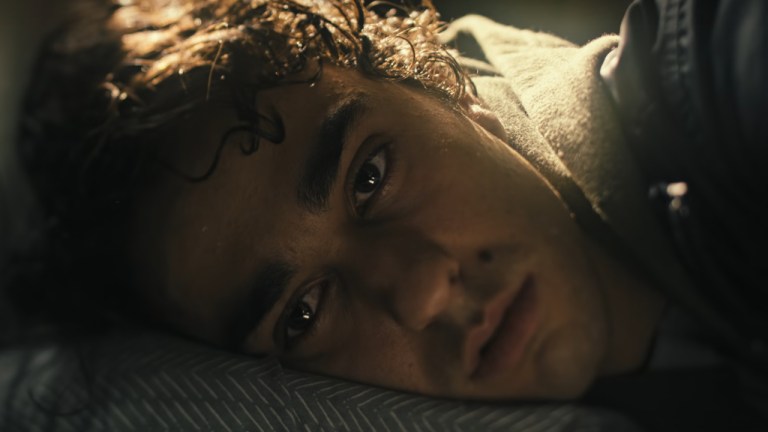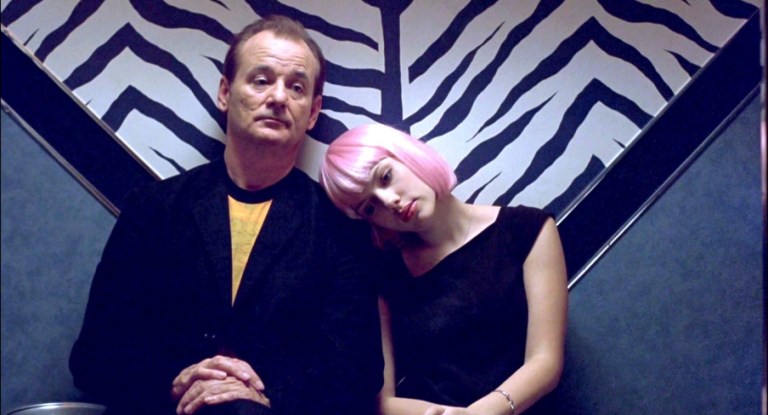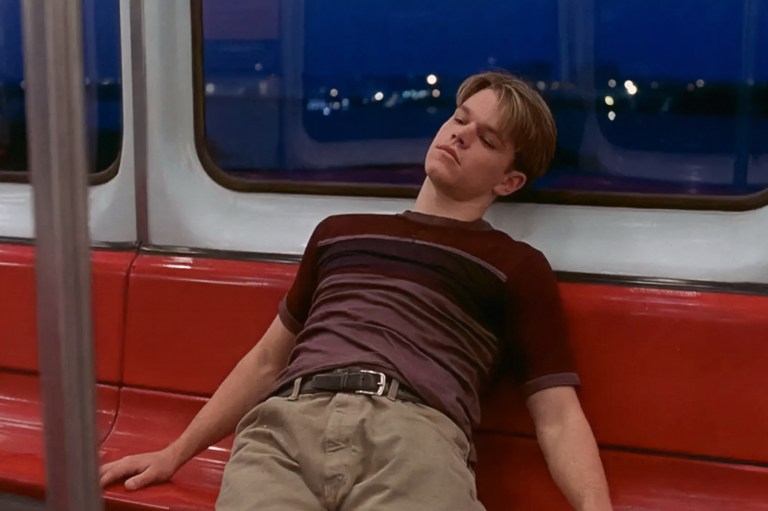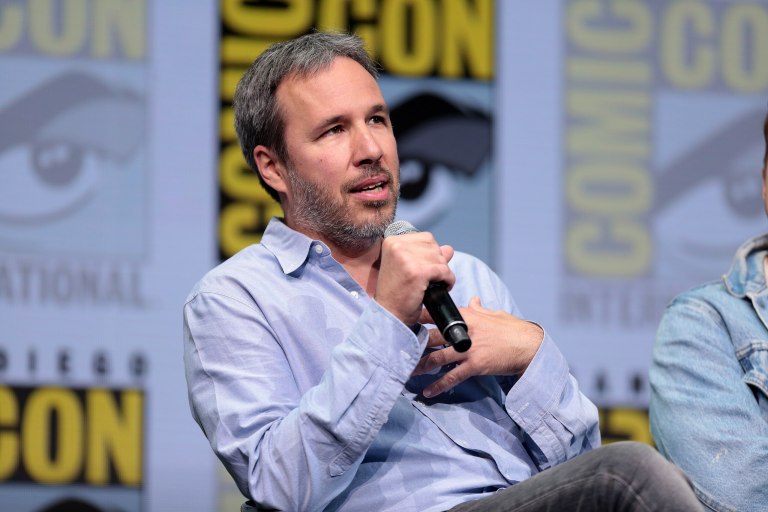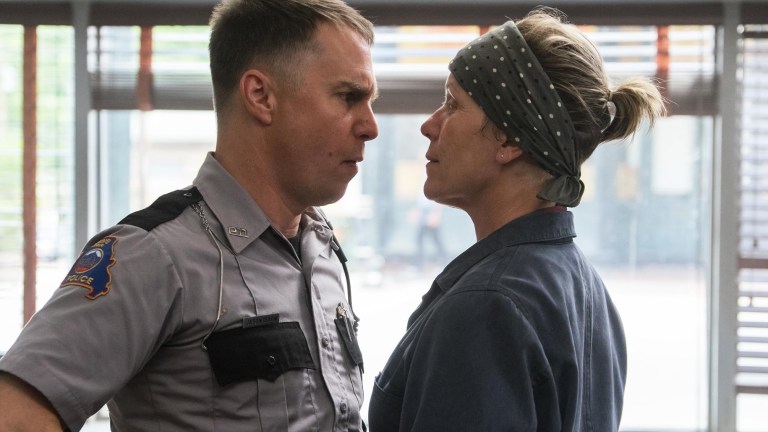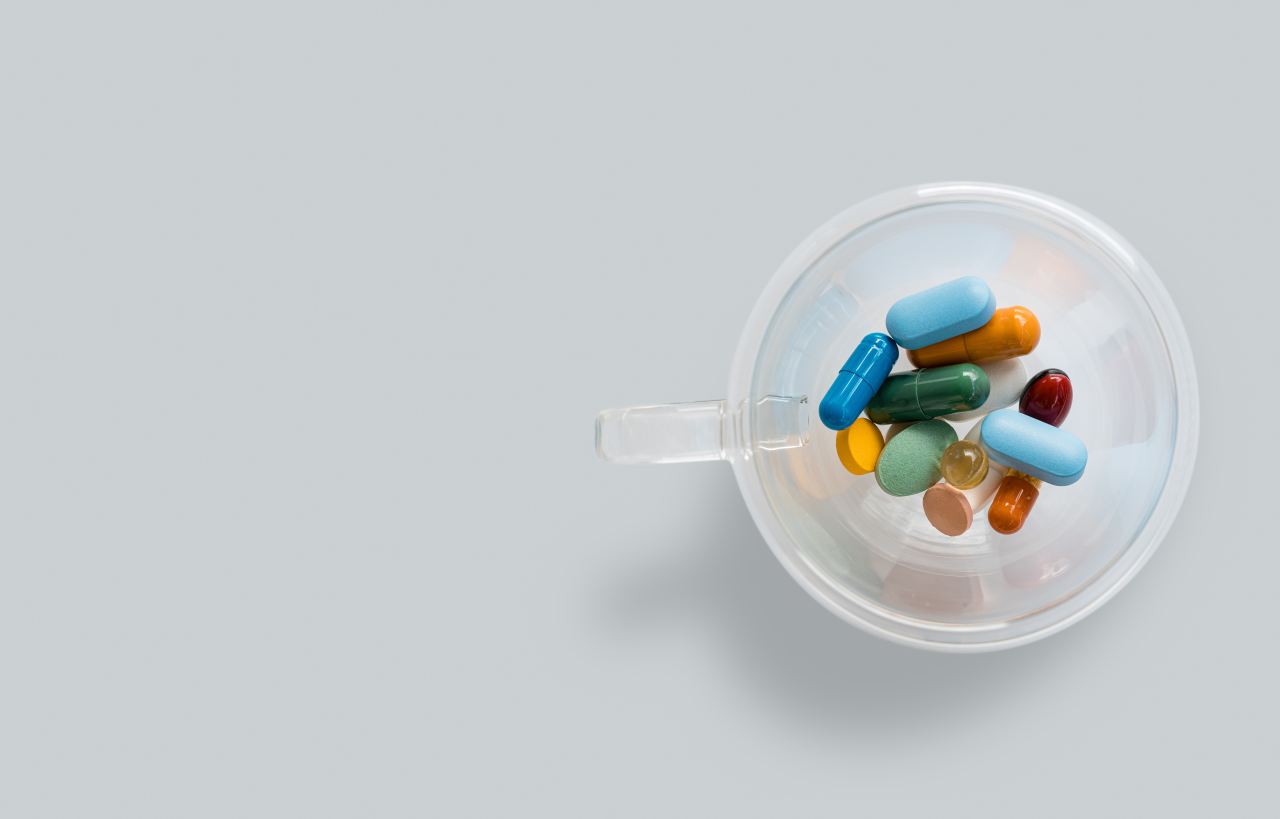
Seeking Serotonin For The End Of The World
I sometimes think it’s the end of the world. Not in an “I’m-anxious-and-I-am-overblowing-this-situation” kind of way—no, when I say “end of the world,” I mean it very literally.
The doctor’s office is cold and I am exhausted. It’s been almost three weeks since I’ve gotten a full night’s sleep, though I feel like I could pass out right here and now in the patients’ chair. I’d gone back and forth about booking this appointment, but eventually desperation spurred me forward, and now, here I am, sitting across from a nurse practitioner in blue scrubs and a matching mask—a dystopian detail that didn’t exist last time I’d visited.
“Do you have a history with anxiety?” she asks, peering up at me from over her laptop screen.
It’s a difficult question for me to answer. Well, actually, it’s quite easy—my anxiety is a rather obvious part of me. Even my parents, skeptical as they are about mental illness, recognize there’s something atypical about the way my thoughts often spiral out. But I’ve never been officially diagnosed, and that distinction somehow feels important here.
“I guess,” I answer eventually. “I mean, I know I feel anxious about things sometimes.”
The nurse types something into her laptop. “What about panic attacks?”
This one is easier to answer. “Yeah, since high school,” I tell her. “I used to think I was having a heart attack.”
The nurse practitioner smiles sympathetically. I gather this isn’t exactly an uncommon kind of appointment for her. “We see this quite a bit in young people,” she tells me, almost conspiratorially. “People in their twenties who come in talking about insomnia, chest pain, stomach issues, you name it.”
On one hand, it’s comforting. In the midst of an anxiety spiral, I tend to be overcome by a profound sense of loneliness. When your brain is in catastrophe mode while the world around you continues on as usual, you feel like you’re living in a completely different reality than everyone else. On the other hand, I’ve always hated feeling reduced to a statistic. At the end of the day, I’m just another victim in the mental health epidemic.
“Has anything been stressing you out lately?” the nurse asks, leaning around her laptop so she can give me her full attention, the way the question deserves.
Where do I even begin?
* * *
I sometimes think it’s the end of the world. Not in an “I’m-anxious-and-I-am-overblowing-this-situation” kind of way—no, when I say “end of the world,” I mean it very literally.
I don’t know where this feeling came from or how long it’s been here. Maybe it’s existed for the majority of my life, slowly creeping into the peripheries of my consciousness with every passing year. One of the clearest memories from my childhood was sitting at my desk in second grade, watching the video reel of a plane crashing into the Twin Towers on the little box television at the front of the room. My teacher left on the radio for weeks so we could hear about every new development, from rescues to talks of terrorism to the speculation of war—things that were difficult for my seven-year-old brain to grasp but that left a mark nonetheless. From there, the headlines of my youth tend to blend together in one long string of unfortunate events: a devastating hurricane, a national recession, an oil spill in the ocean, a mass shooting at an elementary school, the murder of a young Black boy, a bombing at a marathon, a mass shooting at a high school, a water crisis, the murder of an unarmed Black man, police brutality protests, a mass shooting at a high school, a mass shooting at a high school, a mass shooting at a high school. I could go on, but it’s nothing you haven’t heard before.
Since then, those headlines seem to have grown more frequent. There is so little time between one tragedy and the next. Maybe that’s why there’s so much less of a shock when I open Twitter and browse through the news—at a certain point, when your brain can no longer process all the grief, fear, and anger, it becomes easier and easier to dismiss.
It must add up, though, right? All those little feelings of helplessness. All those moments crying at some newly-released video making its rounds on social media. All of those injustices that never seemed to be acknowledged and righted. Whether we’re fully conscious of it or not, they’ve created the groundwork for our reality. No wonder the world always feels like it’s ending. How could it possibly not be?
* * *
The nurse practitioner assures me what I’m going through is normal. “Sometimes people think they have their anxiety under control, but as life gets more complicated, it just gets bottled up,” she explains. “By the time it becomes too much, they don’t always recognize that it’s a problem.”
I suppose it’s not that I didn’t recognize my anxiety was a problem. Maybe it was more that I thought that if I tried hard enough, the solution would come to me naturally. I’d always been told that my emotional state was my own problem to grapple with, that all I needed to do was learn how to take deep breaths and do yoga and put away my phone at night and cut out red meat and drink warm turmeric milk. And, and, and. So many home remedies, so many suggestions crammed down my throat by well-meaning health gurus. I did them all, and yet here I am, sitting in the patients’ chair, looking for another answer and hoping this one might actually work.
The nurse practitioner asks if I’m interested in trying medication. Had she brought it up even a week ago, I would have said no, absolutely not. But I am tired and desperate, and the answer slips out of my mouth so quickly it surprises me: “Yes, please.”
I’d always imagined seeking treatment for anxiety would require navigating a complicated set of hurdles, but in the end, those two little words are all it takes. The ease with which the nurse practitioner writes the prescription is both a relief and a little alarming. Within a few hours, I’m back home with an opaque orange pill bottle in my hands. When I shake it, the little blue tablets rattle at the bottom—for some reason, they’re smaller than what I’d imagined.
What had I imagined, though? If I’m being honest, I never thought I’d be here, staring down at a handful of antidepressants. I’d heard of SSRIs before, had learned about them in my psychology classes, but as I’d scribbled down their uses and benefits and side effects into my notes, I never thought I would become so personally intimate with that information.
A strange sense of mourning washes over me. How did I get here? And why did I think this was a good idea? I somehow know that once I start taking the SSRIs, my life will never be the same, but I don’t exactly understand what that means. I’ve heard the success stories—the friends who swore up and down their medication transformed their lives for the better—but I’ve heard the horror stories, too—the friends who eventually flushed their pills down the toilet because they made them feel empty, numb. Both are scary in their own unique way. Who am I without my anxiety? Is there a way to take away that part of me without somehow taking away all of me?
“Just try it,” my friend texts me after I relay my hesitation to her. “If you don’t like them, you can stop taking them. No big deal.”
It feels so simple when she puts it like that. So why doesn’t it feel that way?
Before I can talk myself out of it, I break one of the pills in half, per the nurse practitioner’s instructions, and down it with a gulp of water. I try not to think about it, but I can’t shake the feeling that this is the end of my world.
* * *
The end of the world as a concept is far from novel. The French bishop Martin of Tours predicted the apocalypse would come before 400 AD. Pope Innocent III claimed it would happen in 666 AD. Martin Luther was sure it would happen no later than 1600. Even just a decade ago, one popular, wide-spread theory was that the end of the Mayan calendar in 2012 was a sign of the end times.
It’s easy to look back and laugh at how wrong they all were. Maybe someday I’ll look back and laugh at how wrong I am now. But I think it’s telling how popular a sentiment it’s become, no matter where you look. On Facebook, religious zealots share long posts about the upcoming rapture. On Twitter, environmental scientists speculate whether we’ve reached the tipping point when it comes to climate disaster. In comedian Bo Burnham’s Netflix special Inside, he lists all the absurdities of the modern day world, then follows it up with the lyrics, “Twenty-thousand years of this; seven more to go.” It seems we’re all just holding our breath and waiting for the end.
I guess, at this point, it all feels sort of inevitable. It’s difficult to fathom a society that survives for much longer after us. In the US alone, there are mass shootings nearly every day. The world has been ravaged by a global pandemic, with new, more dangerous variants of the disease on the rise. Just a few weeks ago, the Gulf of Mexico was on fire, for god’s sake. We’re seeing record heat waves all across the globe, sometimes in climates that aren’t equipped for them. Billionaire CEOs evade taxes and ignore human rights violations, all the while plotting their escape from the world they’re actively destroying via space travel. There are so many problems that need to be solved, but no one with the means to fix them seems to care. If nothing ever gets better, doesn’t that mean it can only get worse?
If you’d told me 10 years ago that life would look like this today, I would have told you, without hesitation, that it sounded like something I’d read in one of my dystopian novels. And that’s because it is. Sometimes it’s difficult to see that clearly when you’re living in the midst of it all. The truth is, the world has become what we always feared it would be.
* * *
A miracle happens: The medication works.
In a strange way, that feels like an understatement. I’m able to sleep again. I wake up an hour, sometimes two, before my alarm goes off. I have the sudden urge to go running in the mornings. I’m able to concentrate on tasks again, can read a book all the way through without feeling like I’ve somehow missed half of it. I don’t feel the urge to check Twitter every few minutes just to see what new awful thing is trending or spend the whole night doom scrolling. For the first time, I’m not constantly waiting for the other shoe to drop.
Is this how normal people always feel? I wonder. Or is this just the early euphoria that comes with the release of pent-up anxiety?
But even as my mental health continues to improve, there’s always the happenings of the rest of the world buzzing at the back of my brain like a fly that never seems to die. With it comes a strange, pervasive sense of guilt. It wells up every time a breaking news alert lights up my phone or a friend texts me some bleak study and my stomach doesn’t somersault in panic like it used to. Because I should feel panic, right? I should feel as sick-to-my-stomach awful as I usually do. But I don’t, and that scares me. Does that mean I somehow care less than I did before?
It’s a blessing and a curse, to finally have a reasonable amount of serotonin in my brain. I wish I could feel happier about it. If only I’d sought out treatment sooner—maybe then I could have thoroughly enjoyed my time before the world started crumbling around me.
* * *
I go on a walk with my father in the late evening, when the air has cooled and the roads are mostly deserted. It’s the kind of day where everything feels strangely beautiful, the kind of moment you wish you could fold into your pocket to preserve for later. I breathe it all in deeply, reveling in the quiet.
“Who knew the end of the world could be so peaceful?” I say, without fully meaning to. But my loose tongue often betrays me, and now that the sentiment is out there, there’s no point in trying to take it back.
My dad snorts in response. “I don’t know why you’ve got it in your head that it’s the end of the world.”
I don’t know how to explain it in a way that would do it any justice. Besides, it isn’t like we haven’t had some version of this conversation before. It always goes the same way: me listing off the reasons why life on earth doesn’t seem sustainable for much longer, him batting away my concerns, saying something along the lines of, “People said the same thing when I was a kid, and look where we are.”
It’s not as convincing of an argument as he thinks it is. I read somewhere that the apocalypse as one giant, catastrophic event is a misconception—instead, it’s a series of small, escalating crises spread out over time. It’s a heat wave here, a tsunami there. It’s a governmental decision that, decades later, leads to cities disappearing under rising seas. Perhaps the end began so long ago neither of us can fully fathom it.
It’s possible my father is right—maybe feeling like the world is about to end is just part of the human condition. But the view from where I’m standing looks bleak, even in these small, lovely moments of reprieve. I wish I could take a pill and make all my concerns disappear, but unfortunately, there’s only so much 50 mg of sertraline can do. At least I sleep better at night.
